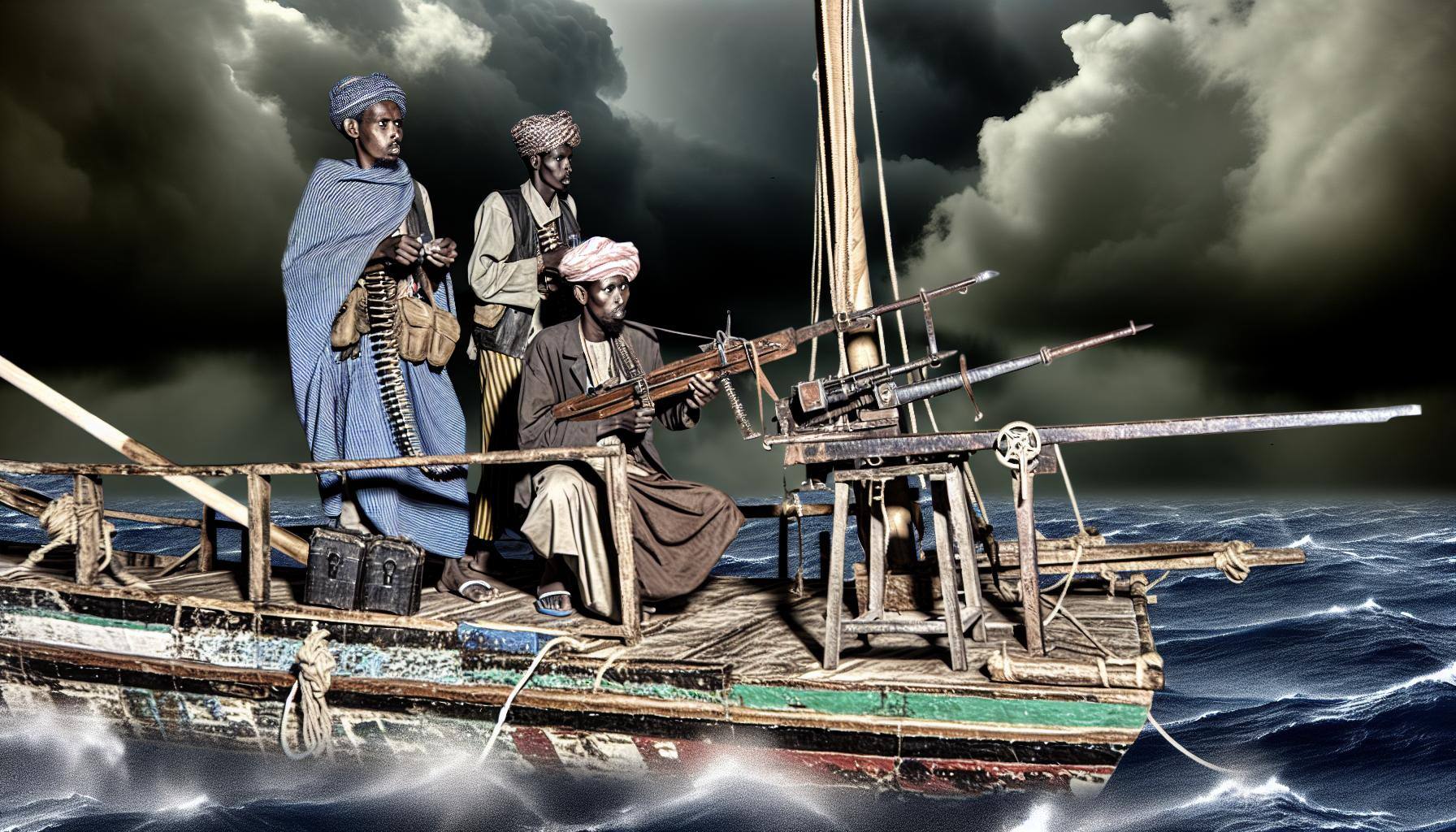3 min read
The Roots of Somalia’s Slow Piracy Resurgence
By: International Crisis Group on June 28, 2024 at 8:00 AM

The historic town of Eyl, situated on Somalia’s north-eastern Puntland coast, has a storied past and a troubling present.
Known for its connection to Sayid Mohammed Abdullah Hassan’s anti-colonial struggles in the early 1900s, Eyl gained infamy in the mid-2000s as the epicenter of Somali piracy. Local fishermen, frustrated by foreign trawlers, turned to piracy, leading to up to 200 incidents annually between 2009 and 2011. This surge forced global shipping routes to adapt, driving up costs significantly. A World Bank report estimated the global economic impact at $18 billion in 2010 alone. In response, the international community, including the U.S., EU, and NATO, launched naval patrols, and Somali administrations intensified local efforts to curb piracy.
These combined efforts appeared successful, with piracy incidents dropping to zero by 2020. However, piracy is resurging along Somalia’s coast, with over 30 incidents reported since November 2023. This resurgence is fueled by both international and domestic factors. Overfishing by foreign trawlers has severely impacted local fishermen, exacerbated by government-issued licenses without adequate regulation. This unchecked exploitation has stirred local anger, creating a sympathetic environment for pirates.
Security measures that once deterred piracy have weakened. International naval presence has declined, partly diverted by other regional conflicts such as Yemen’s Houthi insurgency. Additionally, local Somali security forces are preoccupied with internal conflicts, including clan uprisings in Somaliland, battles against Al-Shabaab and ISIS, and a tense election cycle that concluded in January 2024.
While Eyl has remained relatively calm, the potential for a full-fledged resurgence looms. Fishermen like Yusuf and Mohamed express deep frustration over foreign vessels violating their fishing zones. The economic impact is severe, with fishermen’s earnings drastically reduced, forcing many to continue fishing out of necessity despite diminishing returns. Government inaction and perceived complicity in allowing foreign overfishing exacerbate the problem, eroding trust and fueling local support for piracy as a form of resistance.
Eyl’s history with piracy is complex. Initially seen as protectors of local interests against foreign exploitation, pirates eventually lost community support due to their hedonistic and disruptive behaviors. The community, supported by President Farole’s administration, ousted the pirates in 2011. However, piracy networks went dormant, awaiting opportunities to resurge. Today, hotspots have emerged near Godobjiraan and Bargaal, but the underlying issues remain the same: illegal fishing and ineffective governance.
Local sentiment in Eyl reflects a nuanced view of piracy. While opposed to piracy on moral grounds, residents like Halima and Yusuf acknowledge the role pirates play in deterring foreign trawlers. This duality underscores the deep-seated grievances that, if unaddressed, could facilitate a return of piracy.
The resurgence of piracy has significant global implications. Increased insurance premiums and heightened security measures for ships reflect growing concerns. Recent high-profile incidents, such as the hijacking of the MV Abdullah, underscore the potential for escalating threats.
Addressing these challenges requires coordinated efforts from Somali authorities and international partners. Effective regulation of fishing licenses, enhanced enforcement, and sustainable management of marine resources are critical. The federal Ministry of Fisheries’ recent warning against destructive fishing practices is a positive step, but comprehensive policies and robust enforcement are needed to protect local livelihoods and prevent piracy from regaining a foothold.
In conclusion, the situation in Eyl and along Somalia’s coast remains precarious. Addressing local grievances and implementing effective governance measures are essential to curbing the resurgence of piracy and ensuring long-term stability in the region.
Related Posts
Somalia’s allies fear instability as political..
Intensifying row between president and prime minister sparks concerns as the country struggles to..
EUCAP Mission in Somalia celebrates 10th..
On July 16, the European Union Capacity Building Mission in Somalia (EUCAP Somalia) turned ten..
Anchoring Stability in the HoA: The..
The ratification of the Maritime Security and Economic Development Treaty between Somalia and..



